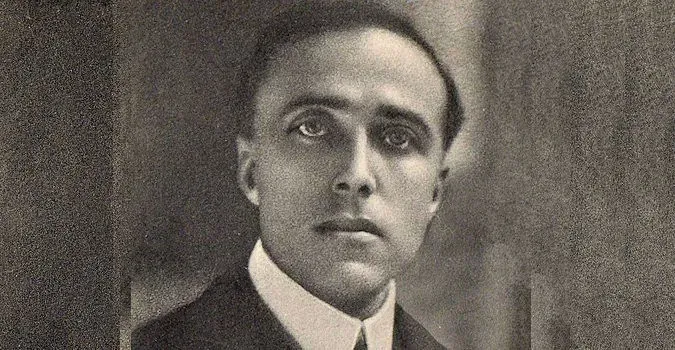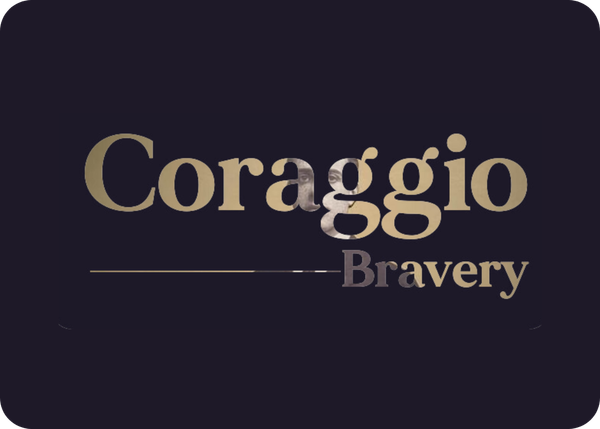Coraggio
NOUN [masculine]
Meaning and English translation 🔖
1. Bravery, Courage
🇬🇧 It refers to the strength of character that allows one to endure or face difficult situations, danger, or pain with determination.
🇮🇹 Si riferisce alla forza di carattere che permette di sopportare o affrontare situazioni difficili, pericoli o sofferenze con determinazione.
2. Nerve, Audacity
🇬🇧 It can also imply impudence or boldness, often negatively describing someone with the nerve or audacity to do something considered rude or disrespectful.
🇮🇹 Può anche indicare sfrontatezza o arroganza, spesso con una connotazione negativa verso chi ha il coraggio o l'ardire di fare una cosa che è considerata scortese o irrispettosa.
| Masculine ♂️ | Feminine ♀️ | |
|---|---|---|
| Singular | il - un coraggio | - |
| Plural | - | - |
Example sentences 💬
Giacomo Matteotti ebbe il coraggio di denunciare l’ingiustizia.
Giacomo Matteotti had the courage to denounce the injustice.
Le sue parole hanno dato coraggio ai presenti.
His words gave courage to those present.
Coraggio, parla! Dimmi cosa ne pensi!
Come on, speak up! Tell me what you think!
Quel delinquente ha avuto il coraggio di negare tutto davanti a tutti.
That thug had the nerves to deny everything in front of everyone.
Ci vuole proprio un bel coraggio per comportarsi così.
It really takes some audacity to behave like that.
This article is brought to you by Giulia School, where you can learn Italian the natural way—with real conversations and passionate teachers guiding you every step of the journey. It’s the closest thing to immersion you can get without living in Italy. Click here to learn more.
Idioms with coraggio 🇮🇹
Farsi coraggio
→ To pluck up courage
Mi sono fatto coraggio e ho detto tutto quello che pensavo.
I plucked up courage and said everything I was thinking.
Avere il coraggio di...
→ To have the guts / nerve to...
Non ha avuto il coraggio di guardarla negli occhi.
He didn’t have the guts to look her in the eyes.
Where does the word coraggio come from? 🔎
Coraggio comes from the Provençal corage derived from the Latin cor (heart).
This etymology reflects the connection between courage and the heart, emphasizing bravery and emotional strength.
Did you know that... 🤓
Impress your italian friends with curious facts about Italy and its culture

With 3.292 streets dedicated to him, Giacomo Matteotti is sixth in number of streets named after people in Italy. Why is he so important?
Matteotti was an Italian socialist politician and a vocal critic of the Fascist regime led by Benito Mussolini. Born on May 22, 1885, Matteotti became a prominent figure in Italian politics, known for his unwavering commitment to democracy and justice.
Matteotti's most significant moment of bravery came on May 30, 1924, when he delivered a powerful speech in the Italian Parliament denouncing the Fascists' electoral fraud and violence. This courageous act of defiance made him a target, and just eleven days later, on June 10, 1924, he was kidnapped and brutally murdered by Fascist thugs.
His assassination sent shockwaves throughout Italy and the world, highlighting the violent lengths to which the Fascist regime would go to silence opposition. Matteotti's martyrdom became a rallying point for anti-Fascist resistance and is remembered as a symbol of the fight for freedom and democracy.
Today, Giacomo Matteotti is celebrated for his courage to speak truth to power, even at the cost of his life. His legacy serves as a reminder of the importance of standing up against tyranny and defending democratic values. Matteotti's life and death exemplify the true essence of coraggio — the mental and moral strength to confront danger, fear, and adversity for the greater good.





